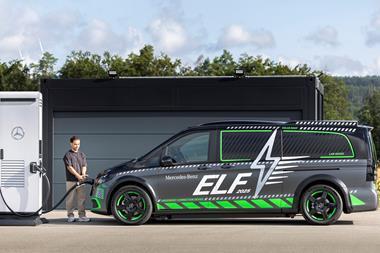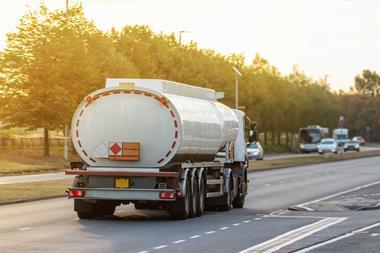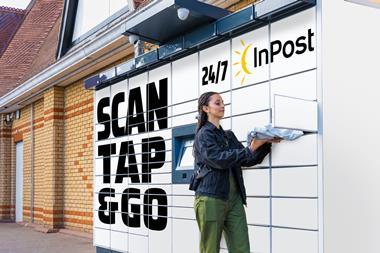- UK new car registrations ‘grow’ for first time since August – up 11.5% – but remain -36.9% adrift of 10-year March average.
- Showrooms ready for opening next week following Q1 shortfall of 58,032 fewer cars, at a cost of £1.8bn to industry.
- The shift to new technologies is continuing, says the SMMT, with plug-in vehicle demand reaching its highest ever volume. Battery electric vehicles (BEVs) and plug-in hybrid vehicles (PHEVs) took a combined market share of 13.9%, up from 7.3% last year as the number of models available to customers increased from 72 to 116.

The UK new car market recorded its first ‘growth’ since August 2020, with 29,280 more units registered during March compared to the same month last year, according to figures published today by the Society of Motor Manufacturers and Traders (SMMT).
However, the month represents the anniversary of the first lockdown in March 2020, when the pandemic brought Britain to a standstill and registrations fell by 44.4%.
Compared with the 2010-2019 March average of 450,189, registrations were down 36.9%, with 283,964 units registered. So far, 2021 has seen 58,032 fewer cars registered compared to January to March last year, equivalent to a loss of £1.8 billion in turnover during the first quarter.
The shift to new technologies is continuing, says the SMMT, with plug-in vehicle demand reaching its highest ever volume. Battery electric vehicles (BEVs) and plug-in hybrid vehicles (PHEVs) took a combined market share of 13.9%, up from 7.3% last year as the number of models available to customers increased from 72 to 116. Registrations of BEVs increased by 88.2% to 22,003 units, while PHEVs rose by 152.2% to 17,330. Hybrid Electric Vehicles (HEVs) also rose 42.0% to reach 21,599 registrations.
Mike Hawes, SMMT chief executive, said: ”New plug-in models are already helping drive a recovery but to convince more retail consumers to make the switch, they must be assured these new technologies will be convenient for their driving needs and that means, above all, that the charging infrastructure is there where they need it, and when they need it.”
The SMMT has calculated that for the sector to return to its pre-pandemic levels, around 8,300 new cars will need to be registered every single trading day for the rest of the year. By comparison, the industry has averaged around 7,400 a day during the past decade and current levels are closer to 5,600 a day.
Click and collect provided a lifeline for the sector – made possible by manufacturers and their networks successfully investing in digital channels. Click and collect does not, however, offer the consumer the same experience and excitement as a showroom environment. With dealerships reopening their doors next week, customers can look forward to choosing and configuring a new car, safely, in person from the wide choice available, as dealers attempt to recover some of the £22.2 billion lost in turnover since March 2020.
While overall registrations were slightly up compared to last year, growth came almost entirely from fleets, which saw a 28.7% increase in registrations. Retail consumer demand remained depressed, falling by -4.1% compared to March 2020 as showrooms remained closed for the duration of the month.
Hawes said: “The past year has been the toughest in modern history and the automotive sector has, like many others, been hit hard. However, with showrooms opening in less than a week, there is optimism that consumer confidence – and hence the market – will return. We know we will see record breaking growth next month given April 2020 was a washout, but a strong and sustainable market is possible if customers are attracted to the choice and competitive offer the industry is able to provide within the safest of showroom environments.”
Sue Robinson, chief executive of the National Franchised Dealers Association (NFDA), which represents franchised car and commercial vehicle retailers in the UK, said: “The 11.5% increase in new vehicle sales in March is a notable achievement for the industry and reflects the ability of franchised dealers to diversely engage with their customers. There is still significant pent-up demand and dealers are ready to deliver when lockdown eases on April 12. Our members have ensured that their showrooms are Covid-secure by operating on an appointment basis, investment in PPE and instituting social distancing measures.
“Positively, sales of electrified vehicles have continued to perform this year strongly. While the Government’s recent decision to reduce the plug-in grant has the potential to dampen growth, sales of EVs should continue to increase their market share.
“Today’s figures show that demand for the new ‘21’ plates is high. This demand is expected to further increase as industry data suggests that many car buyers are waiting for dealerships to fully reopen to complete their purchases. As dealers will be able to safely welcome customers back to the showrooms in less than a week, April is expected to be a bumper month.”
Jon Lawes, managing director of Hitachi Capital Vehicle Solutions, said: “With new vehicle registrations rising for the first time since last August, the automotive industry can look forward with renewed optimism. As the UK prepares to emerge from lockdown, there are encouraging signs consumer confidence is returning, increasing by seven points in March according to a recent study. And our industry has undoubtedly adapted to deliver in a covid-safe environment and even experienced growth. We’ve seen this first-hand, with 2020 being a record year for HCVS. Our leasing fleet grew by more than 19% on the previous year against a backdrop of a declining vehicle leasing market. At the same time our customer feedback scores beat the previous 12 months, highlighting the importance of putting customer experience and safety first during these challenging times.
“I strongly believe that overall the industry is in a good position to meet the pent-up consumer demand in the months ahead by focusing on innovative customer service and delivery.”

































No comments yet